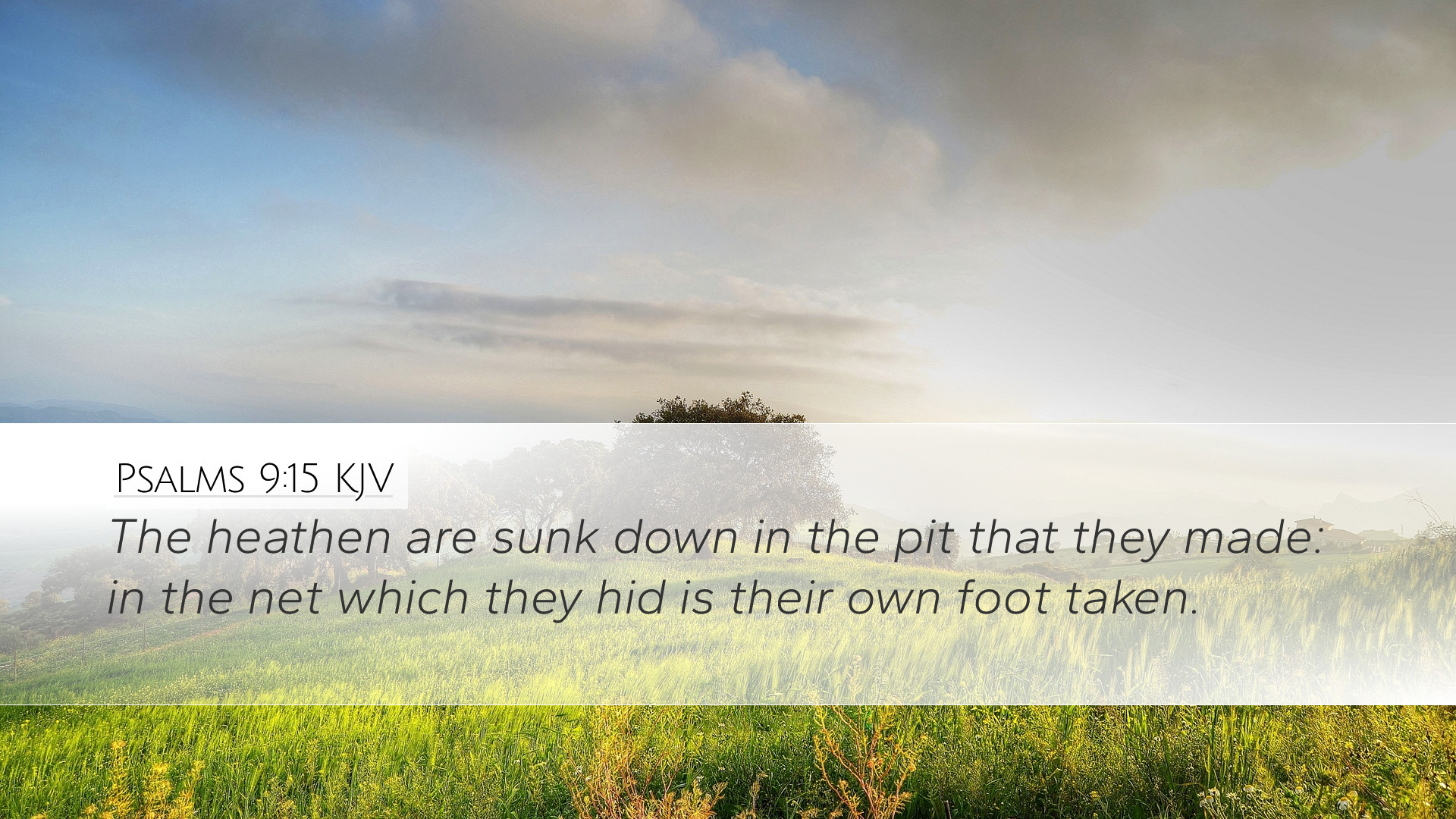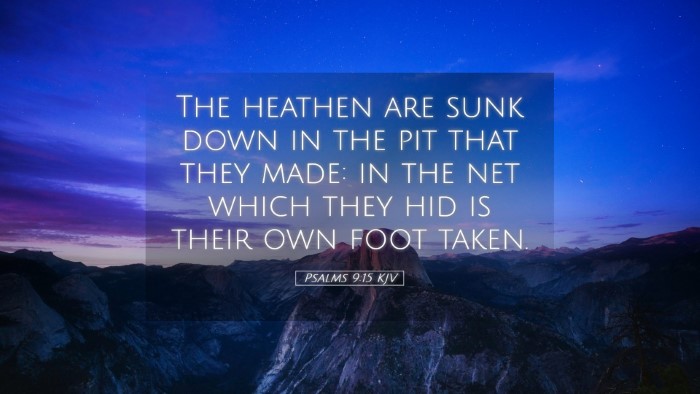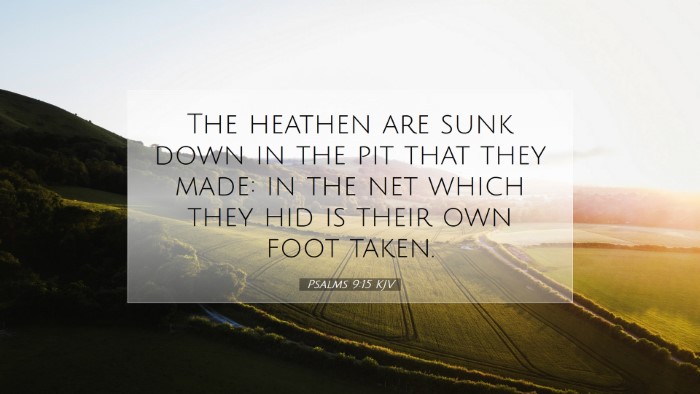Commentary on Psalms 9:15
Psalms 9:15 (KJV): "The heathen are sunk down in the pit that they made: in the net which they hid is their own foot taken."
Introduction
In this verse, the psalmist reflects on divine justice and the fate awaiting the wicked. By examining the insights provided by Matthew Henry, Albert Barnes, and Adam Clarke, we will explore the theological implications and practical applications of this scripture within our faith practice.
Overall Context of Psalms 9
The ninth psalm is a song of praise and lament. It is characterized by the theme of God's sovereignty over the nations and His ability to deliver His people. In the preceding verses, the psalmist recounts the ways God has shown Himself as a refuge and a judge. In light of this context, verse 15 presents a clear contrast between the fate of the righteous and the wicked, emphasizing the ultimate justice of God.
Insights from Matthew Henry
Matthew Henry sees this verse as a vivid illustration of how those who plot wickedness fall into their own traps. He notes that the 'heathen'—those who do not acknowledge God—often create their own ruin through their actions.
- Divine Retribution: Henry emphasizes that God's justice is inevitable; the wicked will ultimately face the consequences of their own actions.
- Human Folly: The 'pit' and 'net' symbolize the destructive consequences of sin and rebellion against God, showcasing the folly of those who disregard His commandments.
- Encouragement for the Righteous: The righteous can take comfort in knowing that God will not allow evil to triumph indefinitely.
Insights from Albert Barnes
Albert Barnes offers a detailed exegesis of this verse, focusing on the metaphorical language used by the psalmist. He explicates the implications of the 'pit' and the 'net' as instruments of destruction devised by the wicked themselves.
- Self-Destruction: Barnes points out the paradox of human sin: in their desire to ensnare others, the wicked ultimately ensnare themselves.
- God's Justice: The justice of God is a key theme in Barnes' commentary. He articulates that while the wicked may seem to flourish temporarily, they cannot escape the justice of God.
- Hope for Believers: For believers, this verse serves as a reminder that those who oppose God will face consequences, reaffirming their faith and hope in divine justice.
Insights from Adam Clarke
Adam Clarke adds depth to the understanding of this verse with his comprehensive approach to the textual elements and historical context. He emphasizes the literary devices used by the psalmist.
- Imagery of Judgment: Clarke notes that the imagery of a 'pit' and 'net' evokes a strong emotional response, highlighting the seriousness of rebellion against God.
- Cultural Context: Understanding the ancient Near Eastern context, Clarke interprets the verse as a warning not only for Israel but also for all nations that oppose God's will.
- Application for Today: Clarke urges readers to examine their lives, reminding them that sin leads to self-destruction.
Theological Implications
This verse invites theological reflection on the nature of God’s justice and human accountability. It suggests that there is a profound moral order ordained by God, where righteousness is ultimately rewarded, and wickedness is punished. The consistent theme across the commentaries is the assurance that God is sovereign and maintains order within His creation.
Practical Applications
For pastors, students, and theologians, Psalms 9:15 offers significant practical applications:
- Ministry of Justice: Pastoral care must include teaching on God's justice as a means of encouraging righteousness among congregants.
- Personal Reflection: Individuals are called to reflect on their own lives, ensuring they are not ensnared by sin and the pitfalls it creates.
- Evangelism: The psalm serves as a reminder for evangelism, urging believers to reach out to those who are 'heathen,' showing them the love and justice of God.
Conclusion
Psalms 9:15 effectively encapsulates the essence of divine justice and the folly of sin. Drawing insights from esteemed commentators like Matthew Henry, Albert Barnes, and Adam Clarke, we understand the gravity of the warnings issued in this verse. It encourages believers to trust in God's righteousness and serves as a stark reminder of the consequences that await the unrepentant. In light of this scripture, we are called to renew our vigilance against sin and to uphold the truth of God's unyielding justice.


